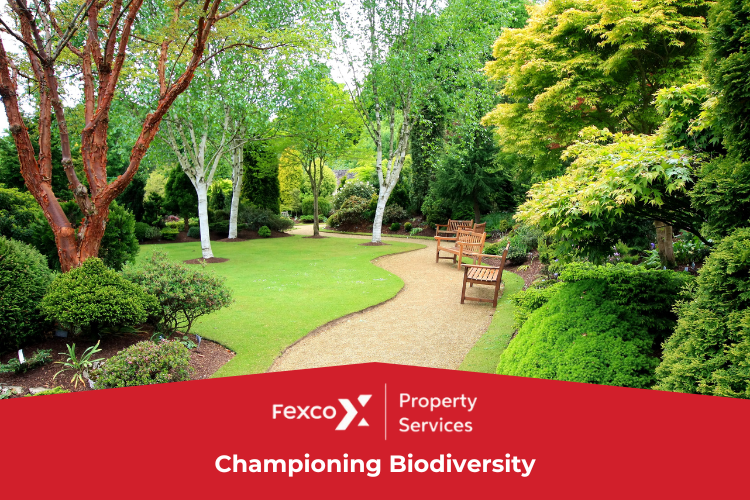Championing Biodiversity on our Developments
Posted Thursday, August 10, 2023

We caught up with National Green Space Manager, Mal Vickers to discuss an exciting and important new initiative to help support biodiversity within developments.
Biodiversity New Gain (BNG) has been described as 'the most significant opportunity in decades to grow nature', and looks to turn development into an opportunity to increase biodiversity rather than deplete it.
BNG is an approach that leaves biodiversity in a measurably better state than before development took place. New laws mean that all appropriate developments will need to deliver a minimum of 10% net gain in biodiversity.
How is Biodiversity Supported with a Reduction of Greenspace?
When you consider that building on a greenfield site by definition reduces the amount of greenspace due to construction of inorganic features such as roads and houses, you might initially think that all development must have a negative impact on nature and therefore biodiversity. However, what is measured is the ecological value of the greenspace and its ability to support wildlife. If before development a site is just agricultural land, the area is bigger but the ability to support wildlife is probably low. By careful design and improving the potential of the remaining land to support wildlife, a smaller area has the potential to support more species. There is a set of metrics to calculate the biodiversity value of a site both before and after building works take place which will normally be the job of an ecologist to assess and calculate.
On Site or Off Site
Developers have the choice to deliver this net gain on site or off site. Off-site means where not practical, they could instead invest in conservation projects elsewhere (normally within the same borough) to deliver the benefit to nature. We are only ever likely to be involved when the net gain is being delivered on site.
Measuring the Gain
It’s important to note that the gain is not measured by the number of animals and birds that can be counted after the development is completed; instead it is the landscape type that is assessed and measured. It’s more a job of providing the right conditions for animal and plant species to colonise the area, which can take time. The developers are providing the potential for the area to support more species, but this potential will only be realised during the subsequent years of management. Nature takes time and cannot be rushed as species need to first discover and then slowly colonise newly created habitats.
Our Role
Our role will be in managing the site to either maintain or further enhance the biodiversity net gain, so that the site delivers on its potential. We are there to 'maintain the gain' by making sure areas that have been created remain as designed and are stewarded as required. When talking about ecological features, we use the term 'stewarding' rather than 'maintaining', as sometimes the best thing we can do for nature is to leave it alone and not intervene.
Enforcement and the Future
It is still early days, and details of who will monitor and enforce BNG is unclear. We all know of examples where grounds services contractors have not delivered in a manner compliant with the submitted plans, and local authority planning departments do not have the resources to monitor compliance and enforce corrective action. We need to ensure that the biodiversity net gain is delivered on site, and not simply on paper, so that wildlife and biodiversity is supported.
We can expect some statutory duty on authorities to check that the promised ecological enhancements are actually delivered; this might be managed by planning officers or local authority ecologists. Here at Fexco Property Services, we are looking to build on our services with the addition of an in-house Ecologist to support our clients through the ongoing management of this critically important issue. This will complement our expertise in horticultural and arboricultural matters across the developments we manage, and several we do not yet manage by working in partnership with residents and developers.

